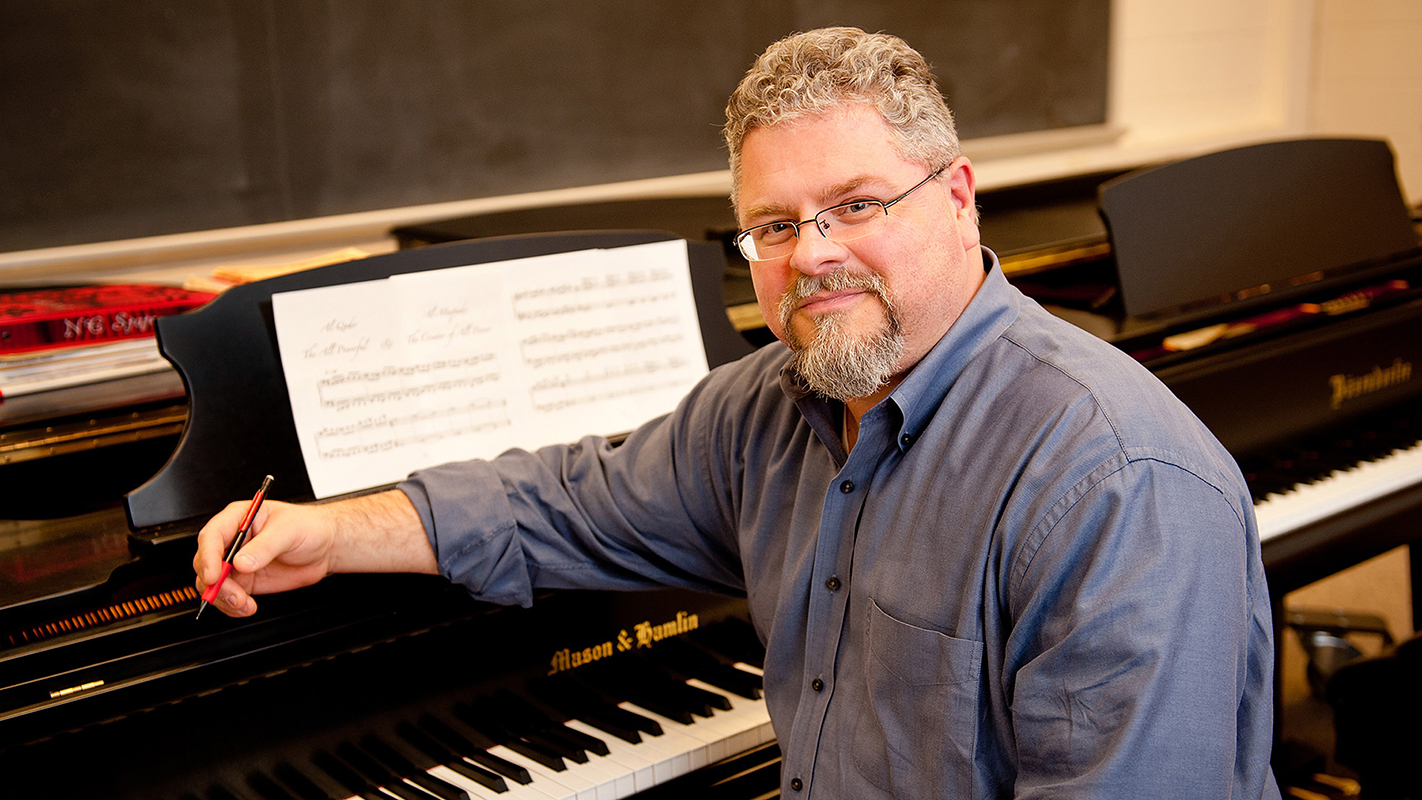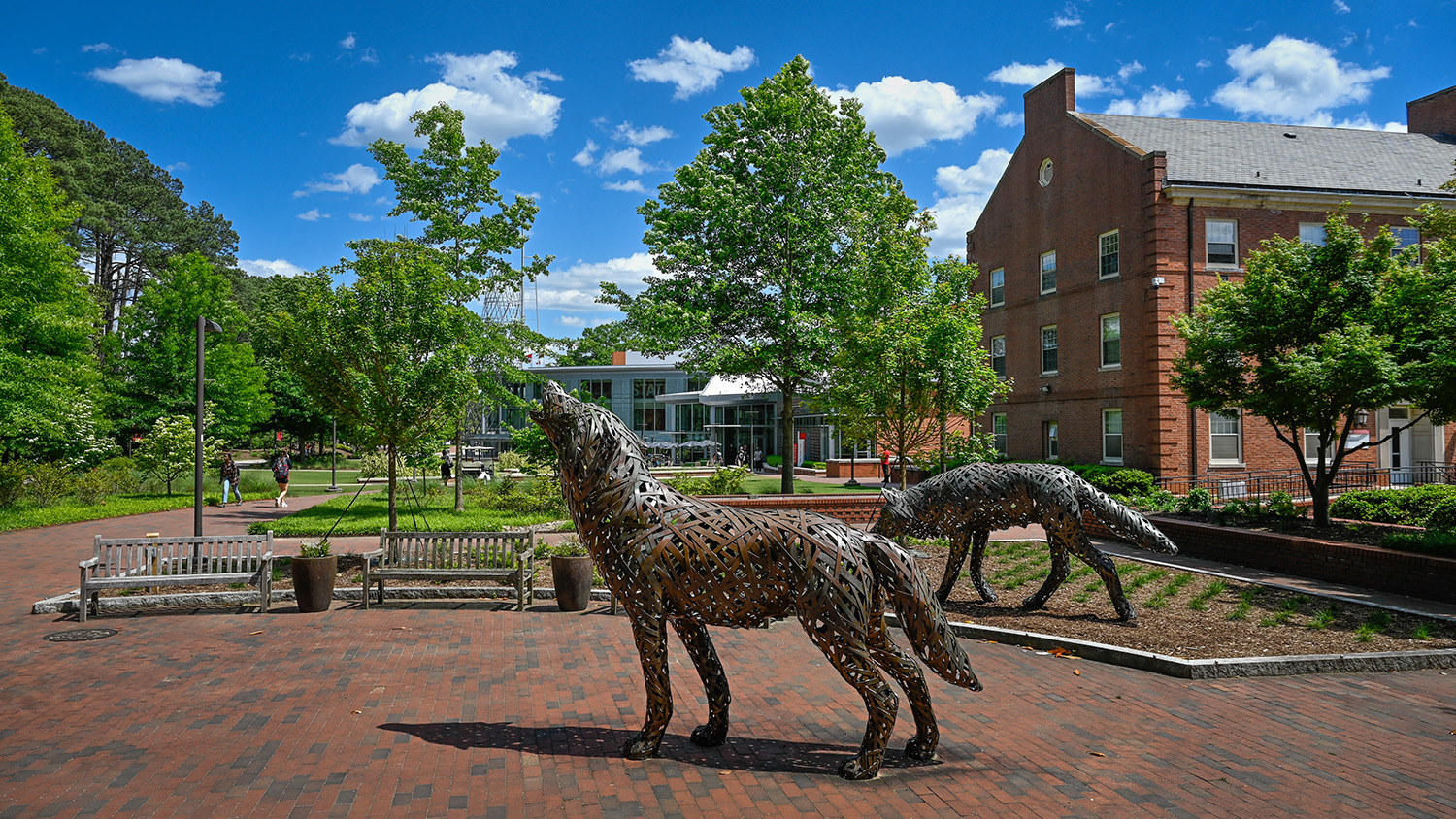Scearce Scores Macbeth Ballet

If you received a prophecy that said you’d become the ruler of your nation, would you believe it? And what would you be willing to do in order to make that prophecy come true?
These are questions with particular relevance in a U.S. presidential election year, but a certain English playwright was grappling with the same issues 400 years ago. Now an NC State professor has composed the score for a new ballet that will once again bring William Shakespeare’s tragic tale of power, corruption and magic to life.
The Carolina Ballet will perform Macbeth—scored by J. Mark Scearce, professor of art and design in the College of Design—on April 14-17 at Raleigh Memorial Auditorium and on April 30-May 1 at the Durham Performing Arts Center.
In 2014 the Carolina Ballet’s artistic director, Robert Weiss, asked Scearce if he’d be interested in composing the score for a Macbeth ballet, with Weiss doing the choreography. The two already had three successful collaborations behind them, and Scearce jumped at the chance to work with Weiss again.
“The exciting part for me is that we’ll have a full symphony orchestra playing the music, so I get to write on a large canvas and tell the story with all the darkness I’ll need,” Scearce says.
The collaborators did the heavy lifting of composition and choreography during a five-week resident fellowship at New York University’s Center for Ballet and the Arts.
“We took full advantage of being in New York,” Scearce says. “We’d work all day, and then at night we’d go see lots of plays and ballets. At intermission we’d go out on the sidewalk and hash out what we thought of the performance. We compared our views to each other and also to the critics. That residency made Macbeth not just stronger; it made it deeper and darker and more violent and passionate.”
By the end of the fellowship, Scearce — much to his surprise — had completed the score.
“It’s the fastest thing I’ve ever done,” he says. “And also the biggest: It has 4,026 measures, and it’s 887 pages long. The score weighs 42 pounds when you print it out. It has to be that big because this ballet is a mammoth undertaking.”
Scearce says Macbeth is also the most personally difficult score he’s ever composed.
“I consider myself a method composer, kind of like a method actor; so before I can write about what it’s like to kill your best friend, I have to feel that emotion so the music can express it,” he says. “While I was in New York, I ended up in the ER three times through sheer exhaustion. I wasn’t taking good care of myself because I was consumed by this play. To climb inside that level of blind, overriding ambition takes a toll on you. Maybe that’s why there’s an old tradition in the theater world that Macbeth is cursed.
“Some people won’t even say the name; they call it ‘the Scottish play’ instead, because it’s set in Scotland.”
In the course of his research for Macbeth, Scearce unearthed an interesting historical fact: Africans, or “Moors” in the parlance of the Middle Ages, were present in Scotland from at least the 10th century onward.
“There was a medieval king of Scotland who had a roundtable of knights who were described as being black, and some people think they may be the inspiration for the tales of King Arthur’s roundtable,” he explains. “There are definitely black knights mentioned in those Arthurian legends. And one of the characters in Macbeth is named Macduff, which comes from the Scottish Gaelic words maga dubh, which means ‘black clan.’ So with all this African influence around, I decided that every time there’s a large dance scene in the ballet, it’ll be a Moorish dance.”
Scearce says he’s pleased with the timing of Macbeth coming out during a contentious presidential campaign.
“When you go through an experience like this, everything seems connected in an amazing way,” he says. “I hope the experience of watching the ballet will enrich people’s sense of what’s important in life.
“That’s what the arts are for, and they can do that for everyone, no matter what field you work in.”
- Categories:


